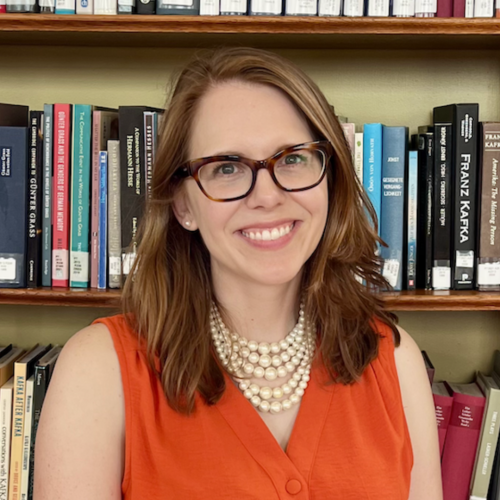With Hurricane Sally threatening the Gulf Coast last week, people in its path may have felt reassured by the mobile apps that would provide them with weather alerts or notify first responders in case of an emergency. While the app users may have been willing to share their location with first responders, they might be surprised to learn that their location and other personal information could be shared with a third party or accessed after the hurricane had passed. Assistant Professor Madelyn Rose Sanfilippo and fellow researchers examine the privacy practices of popular disaster apps in the paper, "Disaster Privacy/Privacy Disaster," which was the lead article in a special issue of the Journal of the Association for Information Science and Technology (vol. 71, issue 9) on information privacy in the digital age.
The research project was inspired by the experiences of Sanfilippo's friends, family, and colleagues who were impacted by hurricanes in 2018.
"I had been working on a number of other projects around mobile app privacy, so when they started to notice strange and invasive things, like notifications about storms when they had disabled them on their phones or personalization of apps for which they had never opted-in to location sharing, they reached out to me," Sanfilippo said. "The most startling concern shared was that location-information they had shared during previous hurricane seasons seemed to have opted them into indefinite tracking. I not only wanted to help them make safe choices and understand what was going on, but also explore broader privacy governance, practices, and apps in the disaster context."
The project focused on fifteen apps that were recommended to users during hurricane season. These included apps developed by government agencies (FEMA), apps developed by trusted organizations that partner with the public sector to provide relief (e.g., American Red Cross), general weather apps, and hurricane-specific apps. According to Sanfilippo, the study specifically revealed multiple governance gaps and loopholes, including a lack of clarity and confusion about what trusted third-party government contractors are expected to do to protect privacy.
“People are often deceived by apps that look like they come from government agencies but in reality come from commercial developers who collect massive amounts of user data, including location, and are not subject to any regulatory oversight, except enforcement by the FTC [Federal Trade Commission] around consumer deception,” she said.
Sanfilippo brought these deceptive practices to the attention of the FTC at PrivacyCon 2020 and to the attention of organizations like the American Red Cross, "who have room to improve but genuinely want to protect disaster victims' privacy within their sociotechnical systems." While the project focused on apps for use during hurricanes, Sanfilippo feels the research has many parallels to other emergency situations like wildfires and pandemics.
“It is really important to interrogate and draw attention to privacy practices and concerns in emergency situations, because these contexts have unique norms, the information communicated is sensitive, and it is imperative that we prioritize appropriate information flow,” she said. "I really hope that my research in this area can help to better protect victims' privacy."
Sanfilippo's research empirically explores governance of sociotechnical systems, as well as outcomes, inequality, and consequences within these systems. She earned her MS and PhD in information science from Indiana University.
Co-authors on the paper include Yan Shvartzshnaider (New York University), Helen Nissenbaum (Cornell University), and Irwin Reyes and Serge Egelman (University of California, Berkeley).
